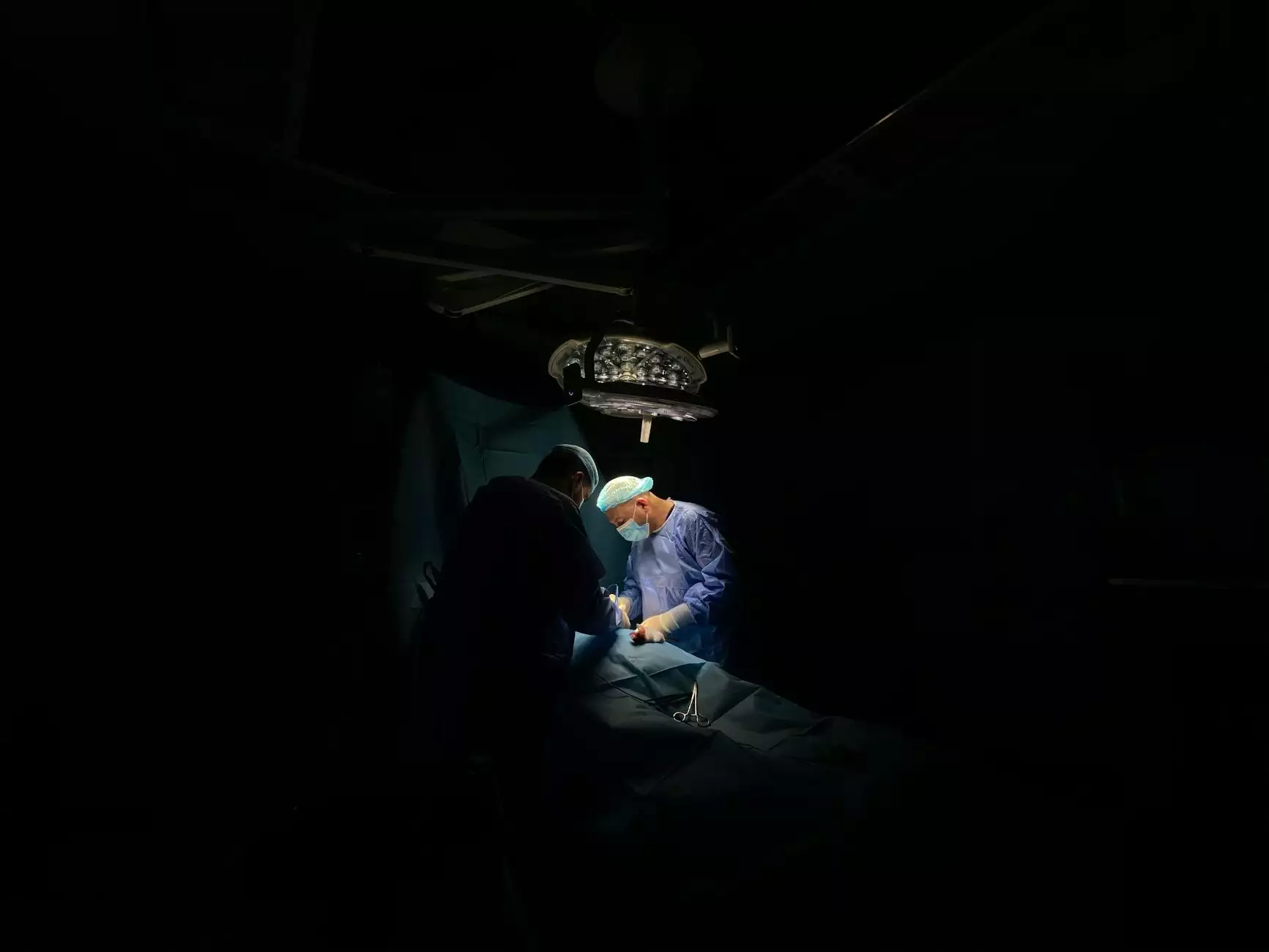Transforming Healthcare with Mobile Surgical Technologies

In today’s rapidly evolving healthcare landscape, the integration of mobile surgical technologies is redefining how medical professionals deliver care to patients. With the ability to bring surgical capabilities directly to communities, these innovative solutions are addressing critical gaps in health services, enhancing accessibility, and improving patient outcomes. This article delves into the many facets of mobile surgical technologies, their benefits, and how they are shaping the future of medicine.
The Essence of Mobile Surgical Technologies
Mobile surgical technologies essentially refer to the tools, systems, and methods that allow for surgical procedures to be conducted outside traditional hospital settings. This can include specialized mobile surgical units, telemedicine capabilities, and portable surgical equipment that can be transported to various locations, including rural areas, disaster zones, and underserved communities.
Advantages of Mobile Surgical Technologies
The advantages offered by mobile surgical technologies are numerous and profound. Here are some key benefits:
- Increased Accessibility: By bringing surgical care directly to where patients are, mobile surgical technologies significantly reduce the barriers to access, especially for those in remote or underserved locations.
- Cost-Effectiveness: Mobile solutions can lower operational costs, resulting in more affordable surgical options for patients and healthcare providers alike.
- Timely Intervention: Quick access to surgical services can be critical in emergency situations. Mobile surgical units can provide essential care promptly, which can be lifesaving.
- Community Health Improvement: By focusing on preventive and elective surgeries in the community setting, mobile technologies contribute to overall health improvements in local populations.
- Flexibility: Mobile surgical units can be deployed anywhere, allowing for tailored healthcare solutions that fit the specific needs of various communities.
The Role of Technology in Mobile Surgery
Technological innovation is at the heart of mobile surgical technologies. Here are some critical areas where technology is creating a transformative impact:
1. Advanced Surgical Equipment
Modern mobile surgical units are equipped with state-of-the-art surgical tools and technologies. These can range from laparoscopic instruments to advanced imaging systems, allowing surgeons to perform complex procedures with precision and safety, even in mobile settings.
2. Telemedicine Integration
Telemedicine plays a crucial role in mobile surgical technologies. Surgeons can now consult with specialists and receive real-time guidance from remote locations. This not only ensures high-quality care but also provides patients with access to expert opinions without the need for extensive travel.
3. Enhanced Communication Systems
Effective communication is vital in surgery. Mobile surgical units are equipped with advanced communication systems that facilitate better coordination among healthcare providers, ensuring seamless operation during surgeries.
Real-World Examples of Mobile Surgical Technologies
Across the globe, numerous organizations have adopted mobile surgical technologies with incredible success. Some notable examples include:
1. Odulair Mobile Clinics
Odulair is a leading provider of mobile surgical technologies, offering fully equipped mobile clinics that cater to various medical needs, including surgery. With a focus on delivering healthcare in underserved areas, they have successfully implemented solutions that not only save lives but also improve the quality of healthcare services.
2. Operation Smile
Operation Smile utilizes mobile surgical units to provide free surgical care to children around the world who suffer from cleft lip and palate. Their initiatives highlight the importance of mobile surgical technologies in addressing specific health needs and improving lives.
3. The Mobile Surgery Unit (MSU)
Various hospitals and health organizations have established Mobile Surgery Units that can travel to different communities. These units are designed to perform elective surgeries, thus alleviating the burden on hospitals and reducing wait times for patients.
Challenges and Considerations
While the benefits of mobile surgical technologies are compelling, a number of challenges must also be addressed:
- Regulatory Compliance: Mobile surgical units must comply with stringent healthcare standards and regulations, which can vary by region and location.
- Infrastructure Needs: While mobile units can operate in various environments, suitable infrastructure must be available to support their operations, including access to utilities and emergency services.
- Training and Staffing: Ensuring that healthcare professionals are adequately trained to utilize mobile technologies is crucial for successful implementation.
- Patient Awareness: Increasing awareness among patients about the availability of mobile surgical options is essential for maximizing their utilization.
Future Prospects of Mobile Surgical Technologies
The future of mobile surgical technologies looks promising as innovations continue to advance. Several trends are likely to shape the evolution of this field:
1. Increased Collaboration
There will likely be an increase in collaborative efforts between hospitals, government agencies, and private organizations to enhance the reach and effectiveness of mobile surgical solutions.
2. Technological Innovation
As technology continues to evolve, we can expect further advancements in surgical instruments, telemedicine tools, and communication systems, making mobile surgical units even more effective and widespread.
3. Growing Demand for Accessibility
As public health demands evolve, the need for accessible surgical options is anticipated to grow, driving the expansion and refinement of mobile surgical technologies.
Conclusion
In summary, mobile surgical technologies are revolutionizing the healthcare landscape, offering innovative solutions that enhance accessibility, efficiency, and quality of care. As we move forward, it is essential for healthcare providers, policymakers, and communities to recognize and embrace the potential of these technologies. By investing in mobile surgical solutions, we are investing in a healthier future for all.
For those interested in exploring the world of mobile surgical technologies, Odulair Mobile Clinics represents a beacon of progress and efficiency in healthcare delivery. With their focus on patient-centered care and the need for surgical accessibility, Odulair is at the forefront of this transformative movement.









